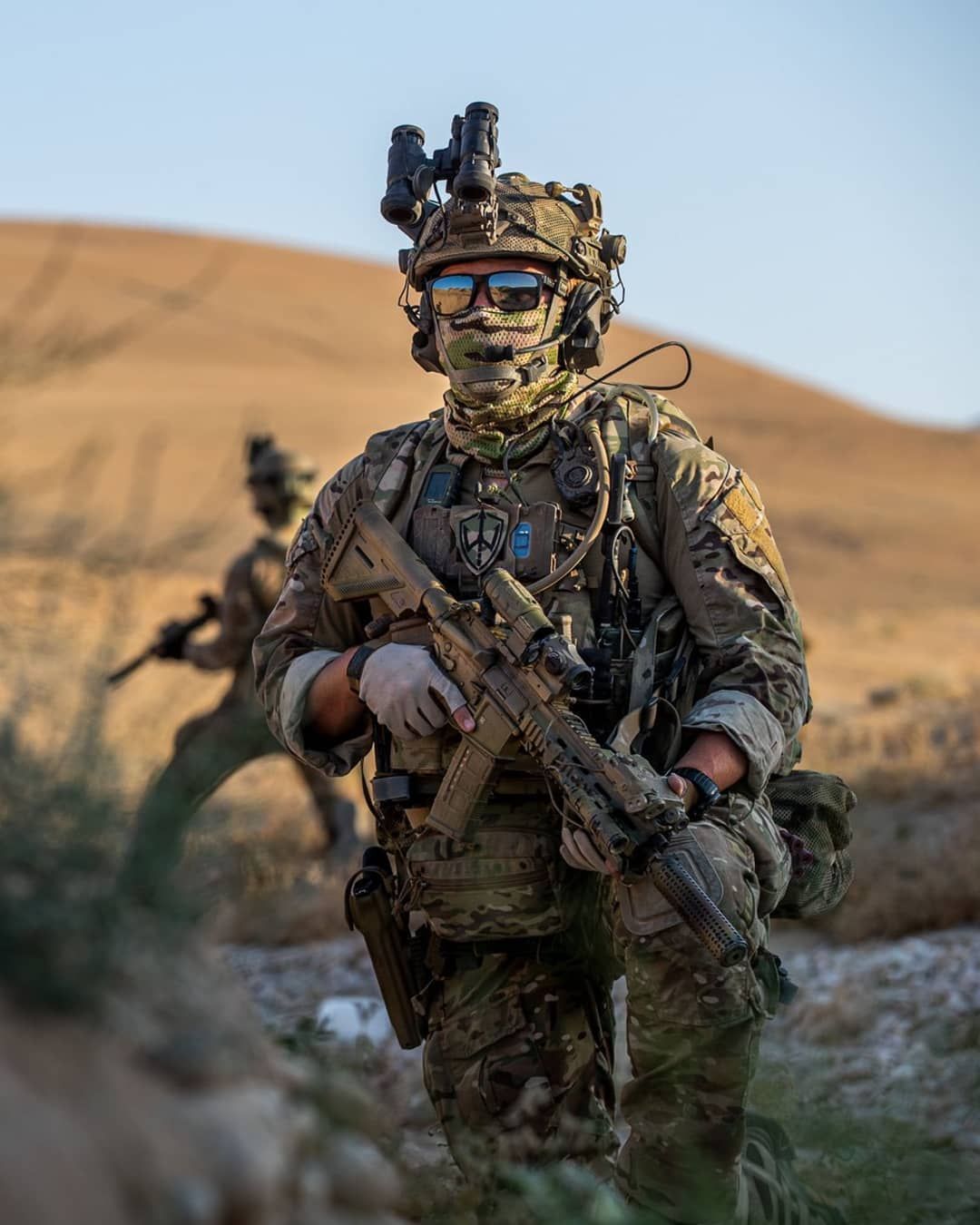Understanding Special Forces: The Elite Warriors Of Modern Warfare
Special forces play a crucial role in modern military operations, often executing complex missions that require a high level of skill, training, and precision. These elite units are known for their ability to operate in challenging environments, making them an indispensable asset to national security. In this article, we will explore the various types of special forces around the world, their training regimens, key missions, and the unique characteristics that set them apart from conventional military units.
As we delve into the world of special forces, it's important to highlight the principles of Expertise, Authoritativeness, and Trustworthiness (E-E-A-T) that guide our exploration. Understanding the intricacies of special forces not only enhances our knowledge of military operations but also allows us to appreciate the sacrifices made by these brave men and women. This article aims to provide a comprehensive overview of special forces, making it a valuable resource for those seeking information on this fascinating subject.
From the Navy SEALs of the United States to the SAS of the United Kingdom, special forces units are often shrouded in secrecy and mystique. However, their contributions to global security are undeniable. By the end of this article, you will have a deeper understanding of what makes these elite units so effective in their missions, the rigorous training they undergo, and the various roles they play in modern warfare.
Table of Contents
- 1. Definition of Special Forces
- 2. Types of Special Forces Units
- 3. Training and Selection Process
- 4. Key Missions of Special Forces
- 5. Characteristics of Special Forces
- 6. Challenges Faced by Special Forces
- 7. Special Forces Around the World
- 8. Conclusion
1. Definition of Special Forces
Special forces are military units that are trained to conduct operations that require specialized skills and tactics. These operations often include counter-terrorism, hostage rescue, reconnaissance, and unconventional warfare. Unlike conventional forces, special forces units are typically smaller in size but are highly trained to operate independently or in small teams.
2. Types of Special Forces Units
There are various types of special forces units around the world, each with its own unique capabilities and missions. Here are some of the most recognized:
- United States Navy SEALs: Known for their versatility and ability to operate in maritime environments.
- British Special Air Service (SAS): Renowned for their expertise in counter-terrorism and reconnaissance.
- Russian Spetsnaz: Specialized in unconventional warfare and intelligence gathering.
- Indian National Security Guard (NSG): Tasked with counter-terrorism and hostage rescue operations.
- French GIGN: A unit specializing in counter-terrorism and hostage rescue, particularly in urban environments.
3. Training and Selection Process
The training process for special forces is rigorous and demanding, designed to push candidates to their physical and mental limits. Selection criteria vary by country, but some common elements include:
- Physical fitness tests
- Mental resilience assessments
- Survival training
- Weapons proficiency
- Teamwork exercises
Successful candidates undergo advanced training in various areas, including close-quarters combat, navigation, language skills, and cultural awareness.
Selection Courses
Many special forces units have a selection course that is infamous for its difficulty. For example, the U.S. Navy SEALs have “Hell Week,” a grueling five-and-a-half-day period where candidates are pushed to their limits.
4. Key Missions of Special Forces
Special forces are often called upon for high-stakes missions that conventional forces cannot handle. Some common types of missions include:
- Counter-terrorism: Engaging and neutralizing terrorist threats.
- Hostage rescue: Extracting hostages from dangerous situations.
- Reconnaissance: Gathering intelligence on enemy positions and movements.
- Unconventional warfare: Supporting resistance movements against hostile forces.
5. Characteristics of Special Forces
Special forces units are distinguished by several key characteristics, including:
- High degree of autonomy
- Extensive training in diverse environments
- Ability to adapt to rapidly changing situations
- Use of advanced technology and tactics
6. Challenges Faced by Special Forces
While special forces are highly trained, they face numerous challenges in the field, such as:
- Operating in hostile environments
- Maintaining secrecy and operational security
- Dealing with psychological stress and trauma
- Adapting to new technologies and tactics
7. Special Forces Around the World
Different countries have developed their own special forces units, each with unique missions and capabilities. Here is a brief overview of some notable special forces units globally:
| Country | Unit | Primary Role |
|---|---|---|
| United States | Navy SEALs | Maritime operations, direct action |
| United Kingdom | SAS | Counter-terrorism, reconnaissance |
| Russia | Spetsnaz | Unconventional warfare, intelligence |
| India | NSG | Counter-terrorism, hostage rescue |
| France | GIGN | Counter-terrorism, hostage rescue |
8. Conclusion
In conclusion, special forces units represent the pinnacle of military training and operational capability. Their expertise in a wide range of missions is vital for national security and global stability. By understanding the structure, training, and roles these elite units play, we can appreciate the sacrifices and dedication of the individuals who serve within them. If you want to learn more or share your thoughts on special forces, feel free to leave a comment below or share this article with others interested in military topics!
Thank you for taking the time to explore the world of special forces with us. We hope you found the information valuable and encourage you to visit our site for more articles on military history and operations.
How Many Kids Does Rihanna Have? A Deep Dive Into Her Parenthood Journey
Exploring Asuka: A Comprehensive Guide To The Iconic Japanese Town
What Does Wyll Mean? Understanding The Significance Behind The Name


